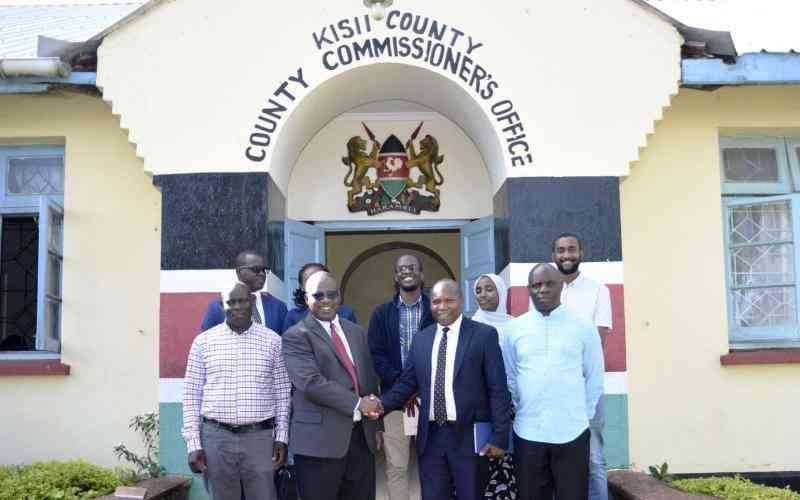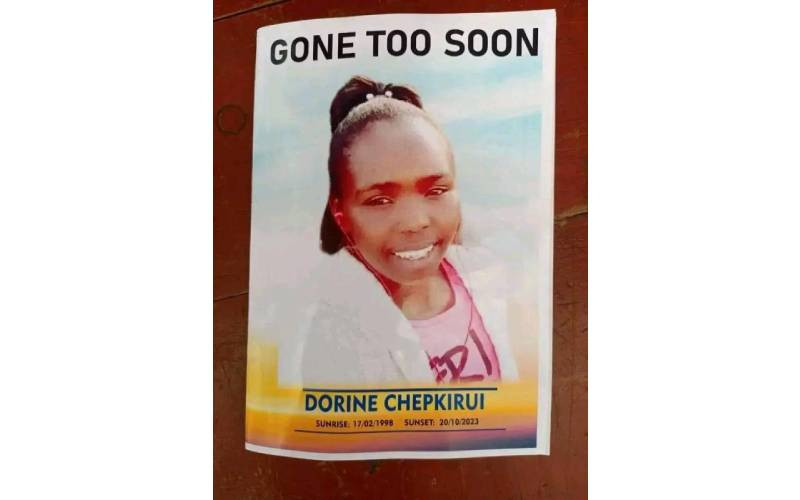Kenya’s capital and countryside are littered with villains, disguised as heroes after manipulating history by forcefully revising it to lionise their roles in serving fellow countrymen. The country’s previous attempts to constitute a national roll of honour of its most gallant sons and daughters has on occasions degenerated into a farcical charade.
There have been instances where people of dubious character have been venerated as heroes while roles played by real heroes have been suppressed.
And monuments erected with a lot of fanfare at the taxpayers expense to immortalise the heroes, are abandoned and at times turned into garbage dumping sites as has happened to statutes commemorating Tom Mboya and Mau Mau in Nairobi.
Today, on Mashujaa Day, as Kenya celebrates its heroes, the Sunday Standard has scoured the villages and easily forgotten streets in search of humble Kenyans whose selfless contributions has improved the quality of life of millions. The passing away of Joe Kadenge, the soccer wizard, Robert Ouko, one of the country’s most famous 400 by 400 metres’ relay sprinter and Nyandika Maiyoro, who captained Kenya’s athletics team in the 1956 Olympics, exposes the neglect and squalor local heroes live in.
Despite the dim view Kenya’s leaders and policy makers have on the people who sacrificed their youth for this country, their exploits still echo throughout the national borders. By the shores of Lake Victoria, the story of how a village tough Onimbo Haulu met his match 63 years is still retold.
Onimbo was resting in Mageta Island when 11 prisoners emerged from a thicket and hacked him to pieces. Hours later, Asura Ayau and Jariyo Ogutu - both fishermen, were ordered into the canoe. Against a brisk and resisting wind they rowed the canoe with the detainees as their human cargo in a daring prison break.
One of Onimbo’s cousins, Thomas Oswera, who described him as a mountain of a human being; tall and solidly built, recounted events that unfolded following the grisly murder and the escape of 11 Mau Mau detainees. “By the following morning, the story of the grisly murder of Onimbo had swept the lakeside villages and the interior bushes beyond. The British mounted a manhunt in the history of the emergency,” says Oswera. Asura and Jariyo, according to residents developed mental illness, culturally shocked and psychologically overwhelmed by memories of the grisly event, and later died. Veteran politician Waruru Kanja was at one time among the Mau Mau detained at Mageta Island camp, whose ruins are still visible today.
Historian, William Ochieng in his book, Historical Studies and Social Change in Western Kenya, said the British were never popular in Yimbo because they had imposed and supported an unpopular Kadimo dynasty of colonial chiefs for half a century.
Sad week
And in Kericho, this is a sad week for the Talai clan following the death of one of their leaders (laibons) Eli Sigilai, (a descendant of the legendary Koitalel Arap Samoei) who documented tribulations his people had gone through since the 1930s.
The Talai clan suffered some of the worst human rights violation by the colonial government, who forcefully evicted them from their prime land around Kericho town and deported then to the Tsetse fly-infested Gwasi area in Homabay County where they were exiled for 30 years.
Until she was given Nobel Peace Prize, Wangari Mathai was treated as a bothersome activist and politician who the best the Kibaki government could do was elevate into an assistant minister while voters rejected her when she sought to be Kenya’s president in 1997.
Second liberation freedom fighter, Onyango Oloo too lived a life of squalor, after spending his youth agitating for a cleaner political environment and was forced into exile after detention during the clamour for multiparty-ism.
Some observers feel it is time Kenya establishes a museum for heroes where outstanding personalities can be immortalised and celebrated so that the can inspire future generations.
[Isaiah Gwengi and Nikko Tanui]
Stay informed. Subscribe to our newsletter
 The Standard Group Plc is a
multi-media organization with investments in media platforms spanning newspaper
print operations, television, radio broadcasting, digital and online services. The
Standard Group is recognized as a leading multi-media house in Kenya with a key
influence in matters of national and international interest.
The Standard Group Plc is a
multi-media organization with investments in media platforms spanning newspaper
print operations, television, radio broadcasting, digital and online services. The
Standard Group is recognized as a leading multi-media house in Kenya with a key
influence in matters of national and international interest.
 The Standard Group Plc is a
multi-media organization with investments in media platforms spanning newspaper
print operations, television, radio broadcasting, digital and online services. The
Standard Group is recognized as a leading multi-media house in Kenya with a key
influence in matters of national and international interest.
The Standard Group Plc is a
multi-media organization with investments in media platforms spanning newspaper
print operations, television, radio broadcasting, digital and online services. The
Standard Group is recognized as a leading multi-media house in Kenya with a key
influence in matters of national and international interest.








